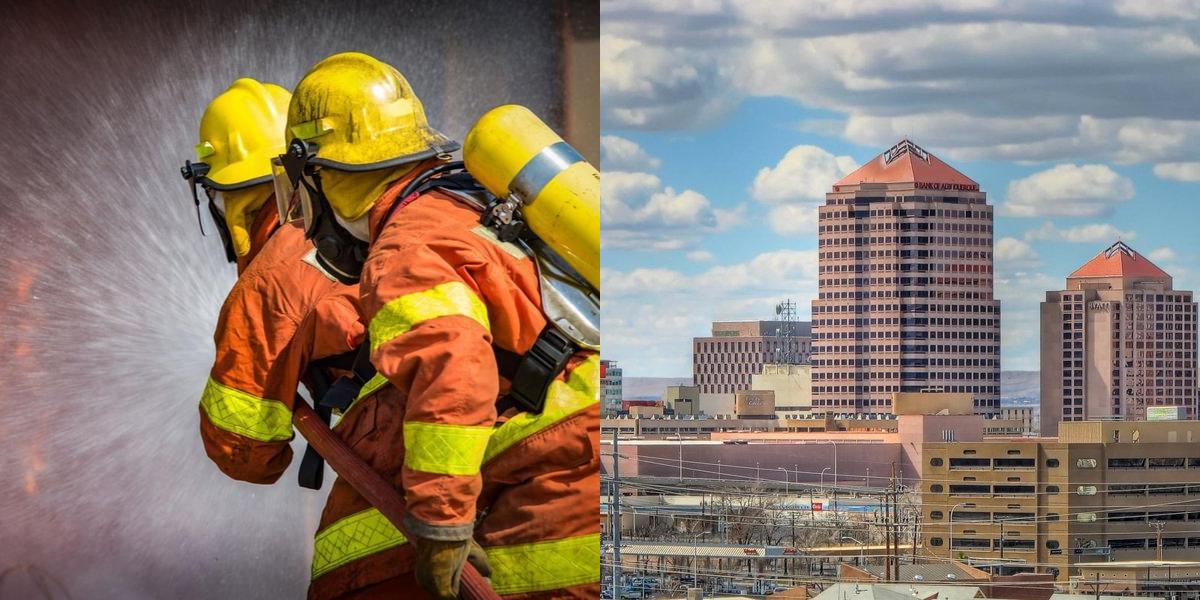How to Become a Firefighter in New Mexico

Firefighters are highly trained emergency response professionals who are responsible for combating and extinguishing fires, rescuing people and animals, and providing medical assistance in various emergency situations. Their primary goal is to protect lives and property from the devastating effects of fires and other emergencies.
Step 1: Network and Volunteer
Networking is an important aspect of any job search, including for firefighter positions. Attend fire department events, job fairs, and community events to meet and connect with firefighters and fire department personnel. Building relationships with current firefighters can help you gain insight into the profession and increase your chances of getting a job.
Volunteering in your community can also be beneficial when applying for firefighter positions. Many fire departments have volunteer programs or auxiliary firefighter positions. Volunteering not only provides you with valuable experience and skills but also allows you to make connections within the fire department.
Step 2: Apply for Firefighter Positions
Keep an eye on the job listings of local fire departments and government agencies. When a firefighter position becomes available, submit your application, resume, and any other required documents. Tailor your resume to highlight your relevant skills, certifications, and experience. Include any volunteer work or community involvement related to firefighting or emergency services.
Step 3: Prepare for the Hiring Process
The hiring process for firefighter positions can be rigorous and competitive. Prepare yourself by familiarizing yourself with the specific requirements and expectations of the hiring process in your area. This may include a written exam, physical fitness test, background check, and interview.
Study and review the materials covered in your firefighter training program to prepare for the written exam. Practice the physical fitness test to ensure you are in good shape and can meet the physical demands of the job. Research common interview questions and practice your responses to improve your interview skills.
Step 4: Stay Persistent and Positive
Getting a job as a firefighter may take time and persistence. It is important to stay positive and motivated throughout the process. Keep applying for firefighter positions and continue to network and volunteer in the firefighting community. Use any feedback or rejections as learning opportunities to improve your skills and qualifications. Stay focused on your goal and remain determined in your pursuit of a firefighting career.
Career Paths and Opportunities after Becoming a Firefighter
Becoming a firefighter opens up a wide range of career paths and opportunities. While the primary role of a firefighter is to respond to fires and other emergencies, there are various specializations and advancement opportunities within the field. Here are some career paths and opportunities after becoming a firefighter.
Fire Department Leadership Positions
As a firefighter gains experience and demonstrates leadership qualities, they may have the opportunity to advance to leadership positions within the fire department. These positions may include fire chief, battalion chief, or captain. Fire department leaders are responsible for managing and overseeing the operations of the department, including training, resource allocation, and emergency response coordination.
Specialized Rescue Teams
Firefighters can also specialize in specific rescue operations, such as urban search and rescue, hazardous materials response, or technical rescue. These specialized teams are trained to respond to complex and high-risk situations, such as building collapses, chemical spills, or confined space rescues. Specializing in a specific rescue area can provide firefighters with additional training and skills, as well as opportunities for advancement.
Fire Investigator
Fire investigators are responsible for determining the cause and origin of fires. They analyze fire scenes, collect evidence, and conduct interviews to determine if a fire was accidental or intentionally set. Fire investigators often work closely with law enforcement agencies and may be called to testify in court. This career path requires additional training and certification in fire investigation.
Fire Prevention and Education
Fire prevention and education specialists work to prevent fires and promote fire safety within the community. They conduct fire safety inspections, develop and implement fire prevention programs, and educate the public on fire safety practices. This career path requires strong communication and interpersonal skills, as well as knowledge of fire safety codes and regulations.
Emergency Management
Firefighters can also pursue a career in emergency management. Emergency managers are responsible for coordinating and planning emergency response and preparedness efforts at the local, state, or federal level. They develop emergency response plans, coordinate resources during emergencies, and work with other agencies and organizations to ensure effective response and recovery. This career path often requires additional education and training in emergency management.
How Much does a Firefighter Make?
The salary of a firefighter can vary based on factors such as location, experience, and the size of the fire department. According to the Bureau of Labor Statistics, the median annual wage for firefighters was $50,850 in May 2020. The lowest 10 percent earned less than $25,850, while the highest 10 percent earned more than $94,720.
For entry-level firefighters, the starting salary can be lower than the median wage. However, as they gain experience and move up the ranks, their salary can increase significantly. It's important to note that these figures are just averages, and the actual salary can vary depending on various factors.
Final Thoughts
Becoming a firefighter and obtaining your firefighter certification is a challenging but rewarding journey. It requires dedication, physical fitness, and the ability to think quickly under pressure. By following the steps outlined in this guide, you can start your journey towards a career as a firefighter. Remember to stay persistent, continue to learn and grow, and always prioritize the safety and well-being of others.
Weighing the possibilities of a career shift ? Dreambound has written many extensive guides to guide you in making informed decisions. Check out some of these resources below:

Winlynd Caballero is a member of Dreambound's Sales team. She helps in handling the company's finullcial transactions, generating reports, and school sales. Beyond her responsibilities in the realm of numbers and business, Winlynd finds herself deeply immersed in a world of art and music.



